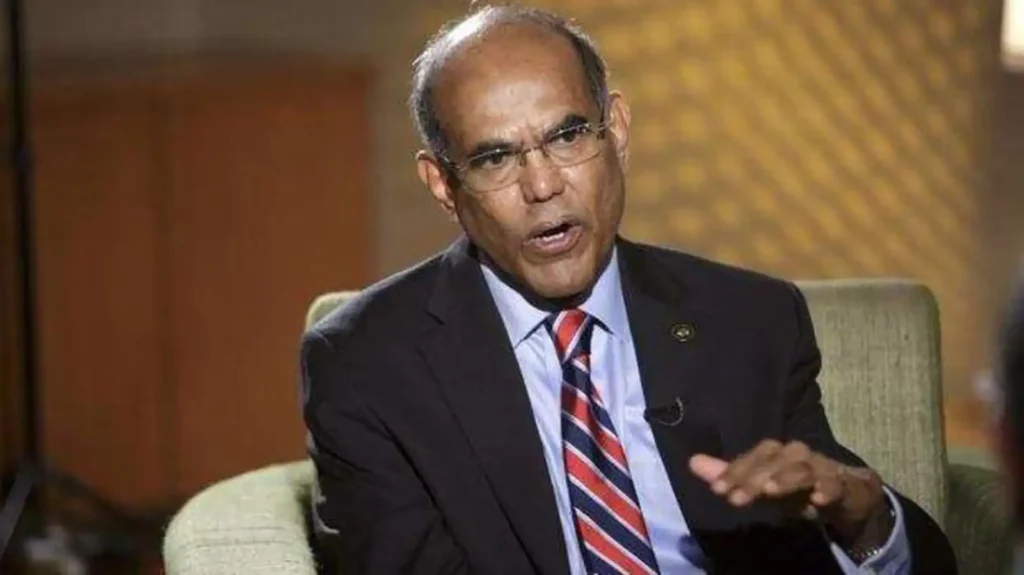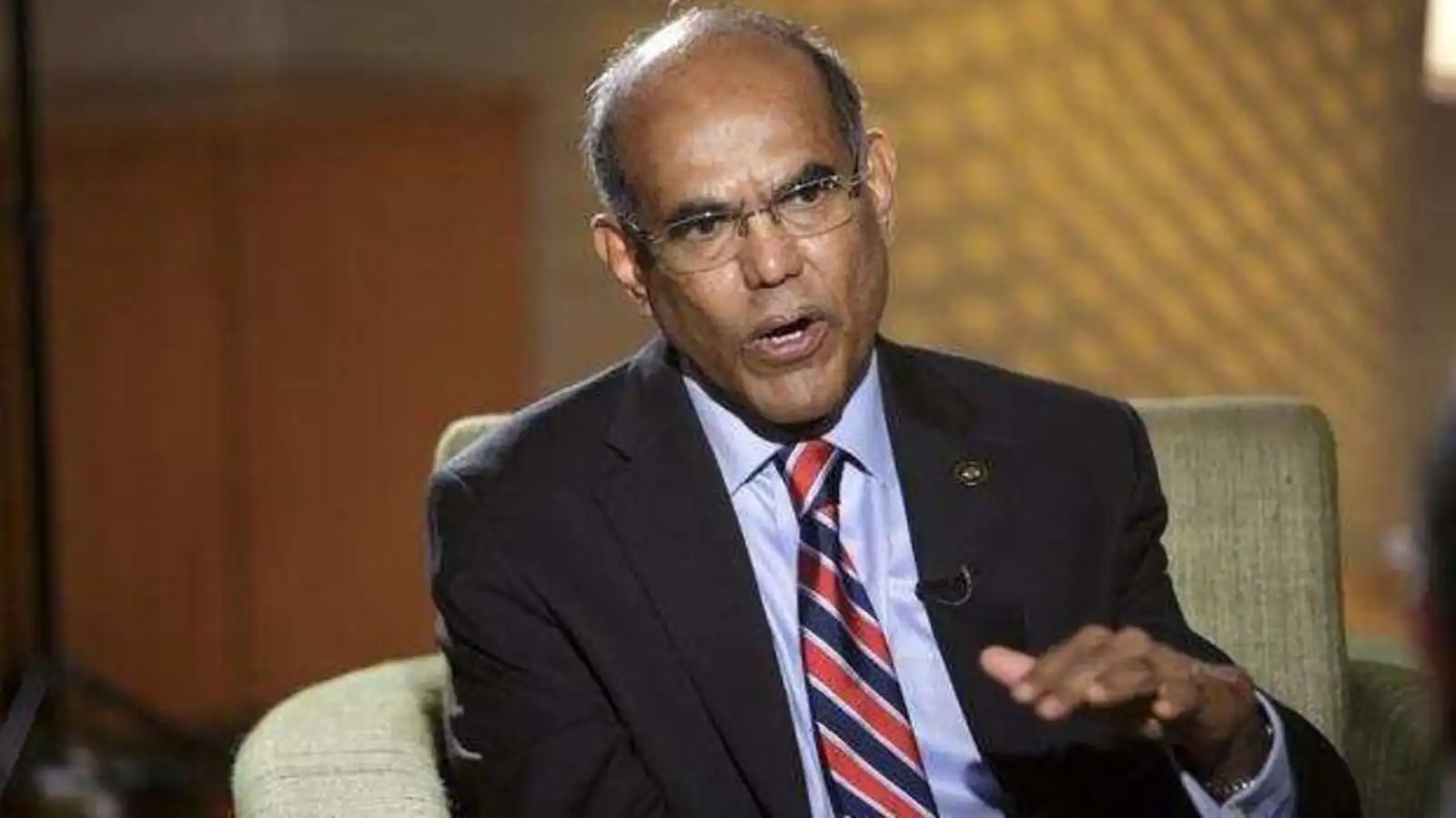
Duvvuri Subbarao, former Governor of the Reserve Bank of India (RBI), recently shared his insights on the critical role of opposition in a democratic system during an Idea Exchange event. His remarks highlight the essential balance between the ruling party and the opposition for a healthy democracy.
The Crucial Role of Opposition
Vigilance and Accountability
- Watchdog Role: The opposition acts as a vigilant watchdog, meticulously monitoring the government's actions. This involves questioning decisions, demanding explanations, and exposing potential misuse of power.
- Transparency: By constantly scrutinizing the government's actions, the opposition ensures that transparency is maintained, reminding those in power that they are accountable to the people.
Policy Scrutiny
- Detailed Examination: When the ruling party proposes new legislation or policies, the opposition rigorously examines these proposals. This includes identifying any loopholes and suggesting viable alternatives.
- Legislative Craftsmanship: Such detailed scrutiny ensures that the laws enacted are well-crafted, equitable, and serve the best interests of the citizens.
Representing Diverse Voices
- Inclusivity: The opposition represents a broad spectrum of ideologies, communities, and interests, ensuring that diverse voices, including those of marginalized groups, are heard in the policymaking process.
- Championing Causes: Issues such as labor rights, environmental protection, and social justice often find a voice through the opposition, which might otherwise be overlooked by the ruling party.
Challenges Faced by Opposition
Limited Resources
- Funding Constraints: Opposition parties typically operate with fewer resources compared to the ruling party, which can limit their ability to reach voters, organize events, and conduct in-depth research.
- Resourcefulness: Despite these constraints, opposition parties remain driven by conviction, continuing their efforts to engage and inform the public.
Balancing Critique and Cooperation
- Constructive Criticism: While it is essential for the opposition to critique the government, excessive negativity can alienate voters. Conversely, blind cooperation can undermine their role.
- Strategic Balance: Finding the right balance between holding the government accountable and cooperating on essential issues is a delicate art that the opposition must master.
Maintaining Unity
- Diverse Coalitions: Opposition coalitions often consist of parties with varying agendas, making it challenging to maintain unity.
- Collective Strength: When these diverse groups stand together, their collective strength can significantly amplify their impact on governance.
Subbarao’s Insights on Democratic Health
D. Subbarao’s tenure as RBI Governor provided him with unique insights into the functioning of democratic institutions. He emphasized that democracy thrives on a balance of power and the independence of institutions.
His experience underscores the importance of maintaining the autonomy of key institutions like the central bank, which parallels the broader need for a strong opposition in a democracy.
Autonomy of Institutions
- Central Bank Independence: Subbarao's tenure is remembered for his staunch defense of the RBI's autonomy, which he views as a microcosm of democratic integrity.
- Institutional Checks: Just as the central bank needs to operate independently to ensure economic stability, democratic systems require independent institutions to provide checks and balances.
Global Context: Democracy Under Pressure
Democratic Decline
- Global Trends: The Global State of Democracy Report 2022 highlights troubling trends of democratic decline worldwide, with increasing polarization, weakening institutions, and attacks on electoral management bodies.
- Authoritarianism: Many countries are experiencing backsliding towards authoritarianism, where power is increasingly concentrated, and opposition voices are suppressed.
Importance of Opposition in Democracy
- Checks and Balances: The presence of a strong opposition is crucial for maintaining the checks and balances that are fundamental to democracy.
- Preventing Autocracy: Without robust opposition, democracies risk sliding into autocracy, where power becomes centralized, and governance may no longer reflect the will of the people.
Historical Perspectives on Democratic Participation
Expansion and Contraction of Voting Rights
- Historical Disenfranchisement: In the 19th century, various disenfranchisement efforts in the U.S. showed the negative impacts of excluding educated and politically knowledgeable groups from the democratic process.
- Inclusive Progress: Over time, the expansion of voting rights to marginalized groups, such as women and African Americans, strengthened democratic participation despite initial challenges related to education and political knowledge.
Modern Challenges
- Democratic Stagnation: Recent trends indicate that progress in democratic participation has stalled, with many countries experiencing declines in key democratic attributes.
- Need for Vigilant Opposition: These challenges highlight the need for a vigilant and strong opposition to uphold democratic principles and ensure that governments remain accountable.
Key Takeaway Points
- Role of Opposition: The opposition is essential for maintaining vigilance, ensuring policy scrutiny, and representing diverse voices in a democracy.
- Challenges: Opposition parties face challenges such as limited resources, the need to balance critique with cooperation, and maintaining unity within diverse coalitions.
- Subbarao’s Insights: Autonomy of institutions and the balance of power are crucial for democratic health, as emphasized by D. Subbarao's experiences.
- Global Trends: Democratic decline and the rise of authoritarianism globally underscore the importance of a strong opposition.
- Historical Lessons: The history of democratic participation highlights the importance of inclusivity and the dangers of disenfranchisement.

Hi, I’m Durgesh Nayak, and I hold a Master’s degree in Commerce with over five years of experience in the banking sector. I am certified with JAIIB and CAIIB, which has given me a solid foundation in financial knowledge. For the past four years, I’ve been sharing my passion for finance through writing money and finance blogs.
My goal is to make complex financial topics accessible and actionable, helping you improve your personal finance, investment strategies, and overall financial planning.

